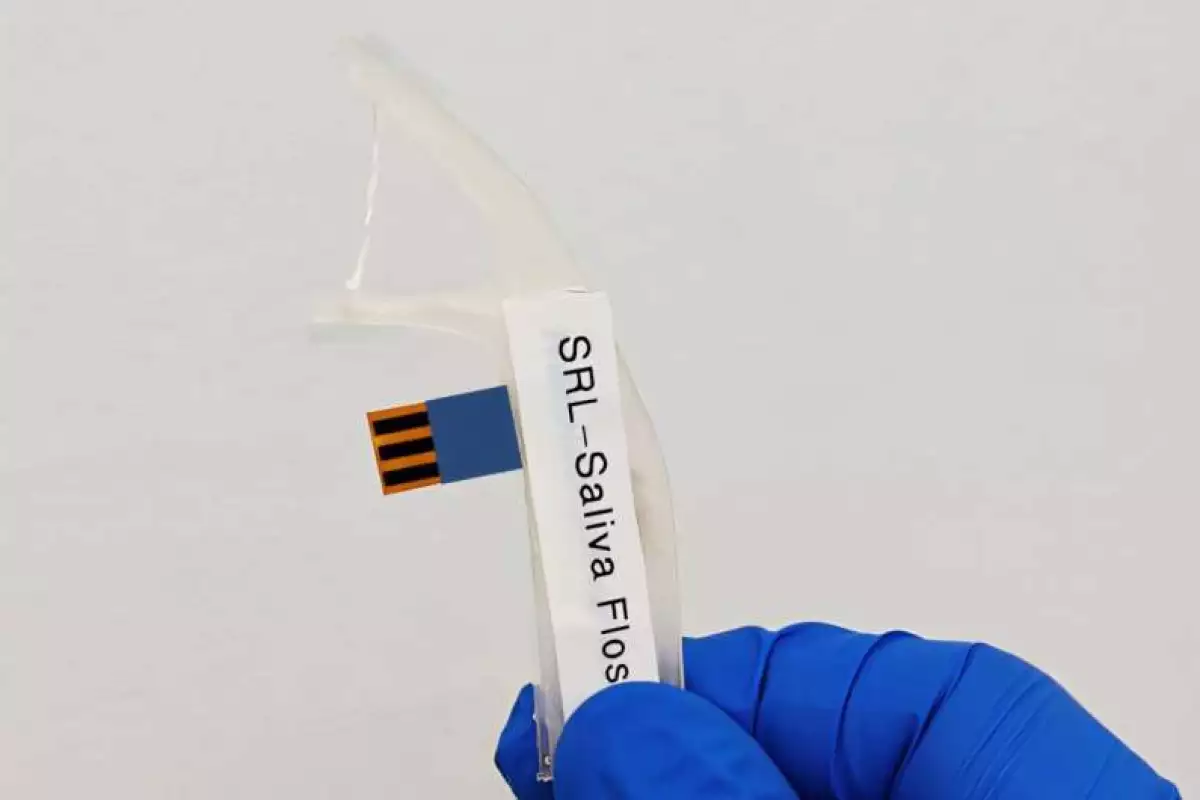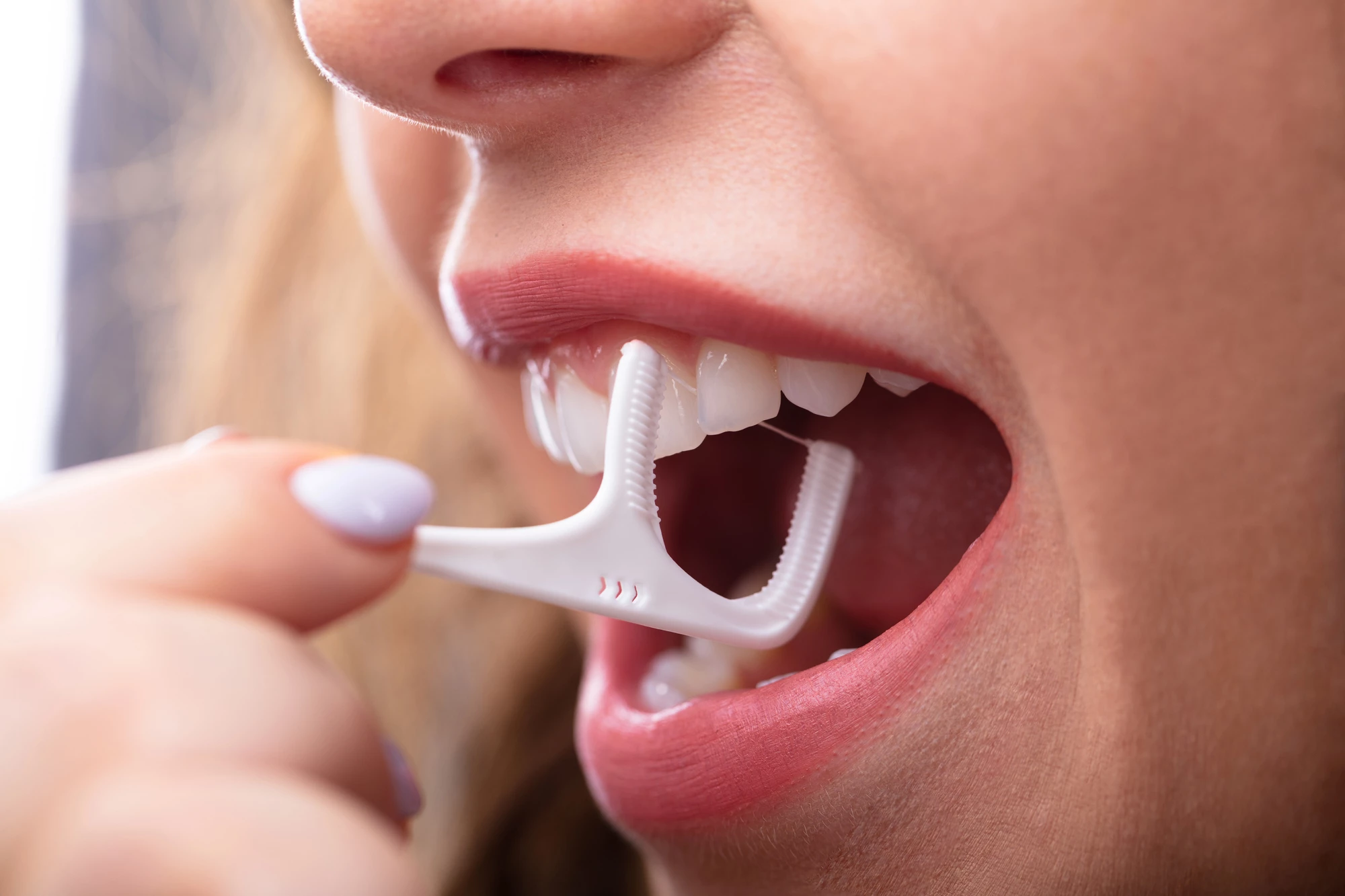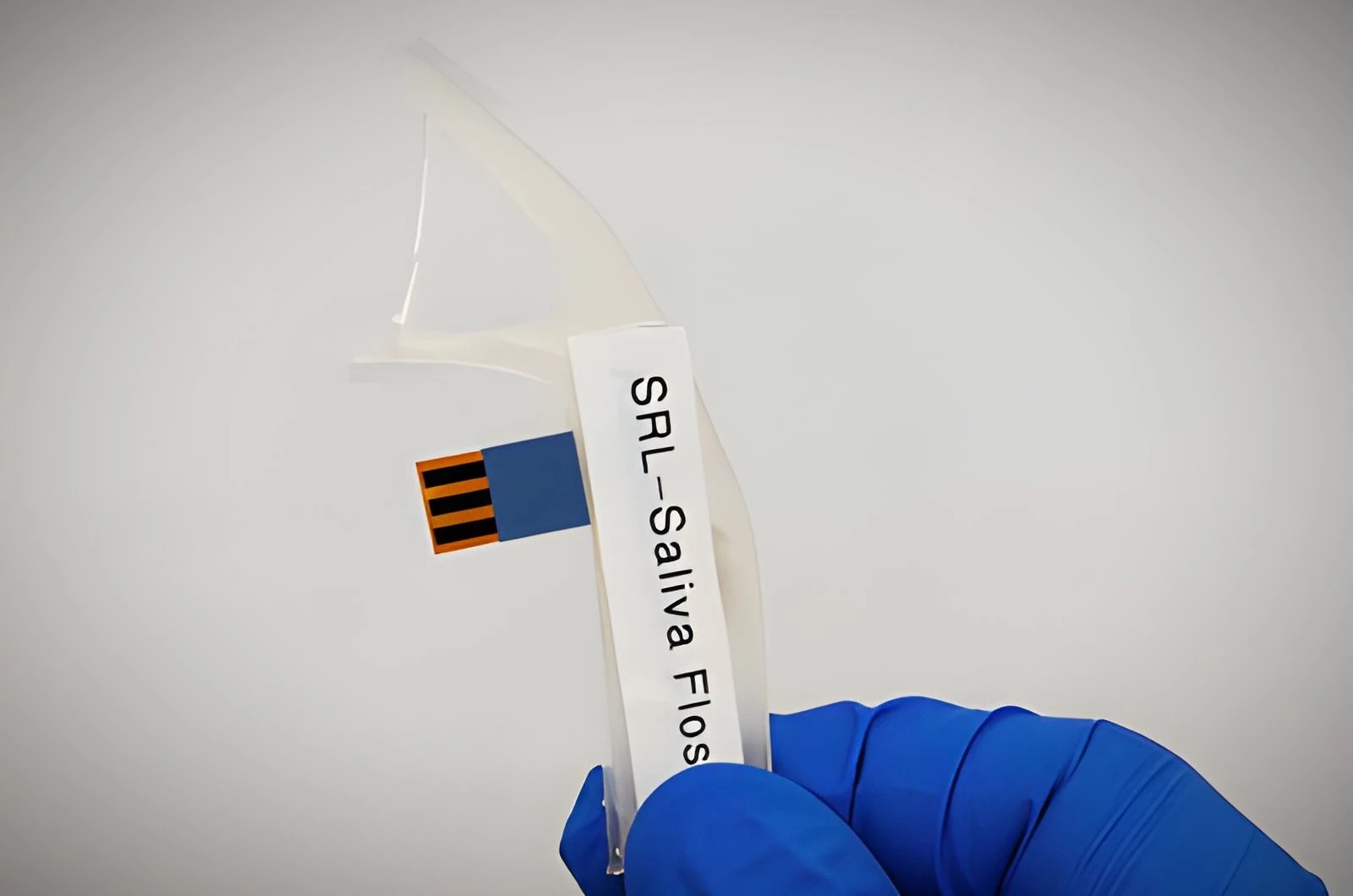You already know when you are feeling highly stressed, but low-grade background stress is harder to detect. A new dental flosser from researchers at Tufts University aims to make it easier by monitoring the chemistry of your saliva.
From waking our brains up 100 times a night to doubling our risk of developing Alzheimer's disease to triggering rampant inflammation, chronic stress is one of the most biologically disruptive forces in modern life. That's why researchers have been working on ways to easily monitor our stress levels at home or while going about our daily lives.
Most of these methods focus on monitoring our levels of cortisol, a steroid hormone produced by the adrenal glands in response to stress. Normal levels of this biomarker are essential for regulating multiple biological functions, but high levels have been linked to a range of issues including weight gain, insulin resistance, and an elevated risk of developing diabetes.
The new floss-based device from Tufts University would help users monitor their levels of this crucial hormone as part of their daily dental-health routine.
The simple tool consists of a commonly used floss pick equipped with a strand of floss that is embedded with a microfluidic thread. When users floss, the thread channels saliva to a small electrochemical sensor embedded in the tool's handle.

To create this sensor, the researchers made something known as an electropolymerized molecularly imprinted polymer (eMIP) by basically pressing cortisol molecules into the substrate and then removing them, leaving behind an imprint. When the thread channels saliva to the eMIP, cortisol molecules gather in the imprint left behind and generate a signal that is sent to a mobile device, like a phone. The more molecules that gather, the stronger the signal, meaning a higher cortisol level.
The setup takes about 10 minutes to conduct its analysis and was shown in testing to be as effective as one of the gold-standards in cortisol testing, the ELISA saliva test. This, say the researchers, makes it one of the best cortisol identifiers reported. The researchers believe that the device could one day be made to measure other biomarkers in the saliva, making home health testing a part of something many people already do on a daily basis.
For now, should the device come to market, users would have an easy way to monitor cortisol and, if they see it climbing, they could take steps to reduce it through either dietary or lifestyle modifications including exercise, meditation, caffeine moderation, and an increase of omega-3 fatty acids. Such a tool would be an improvement over current testing kits, which require users to collect either blood or urine and return it to a lab for analysis.
The device has been described in a study published in the journal ACS Applied Materials and Interfaces.
Source: American Chemical Society via Medical Xpress






